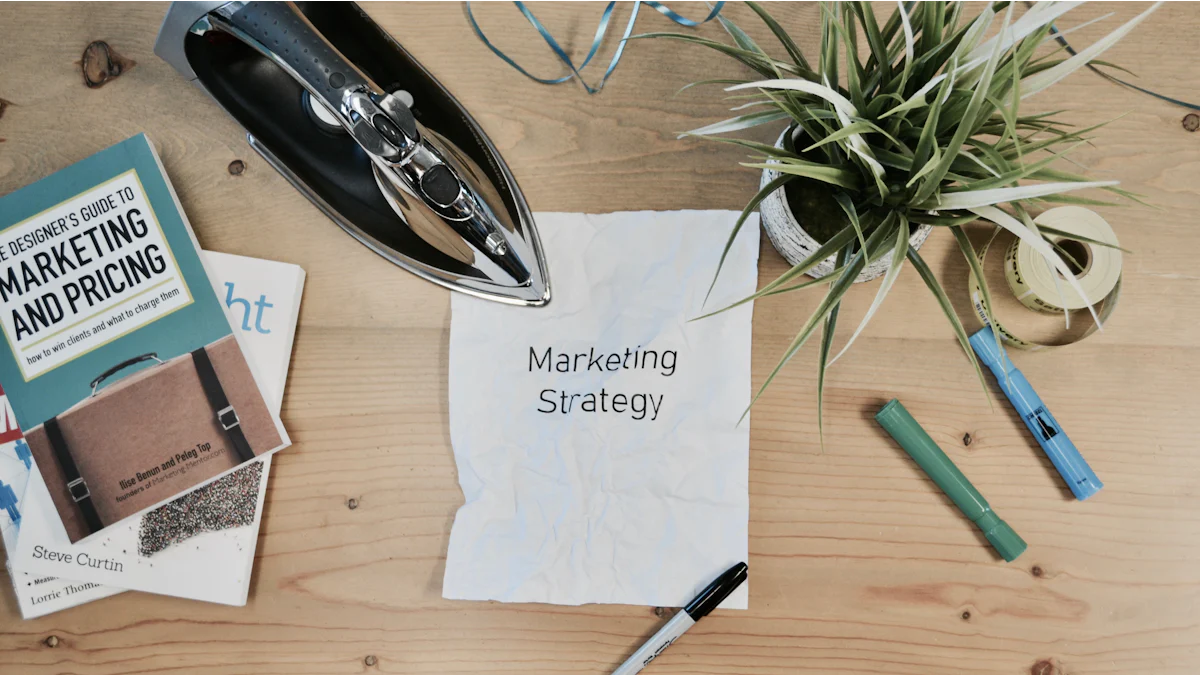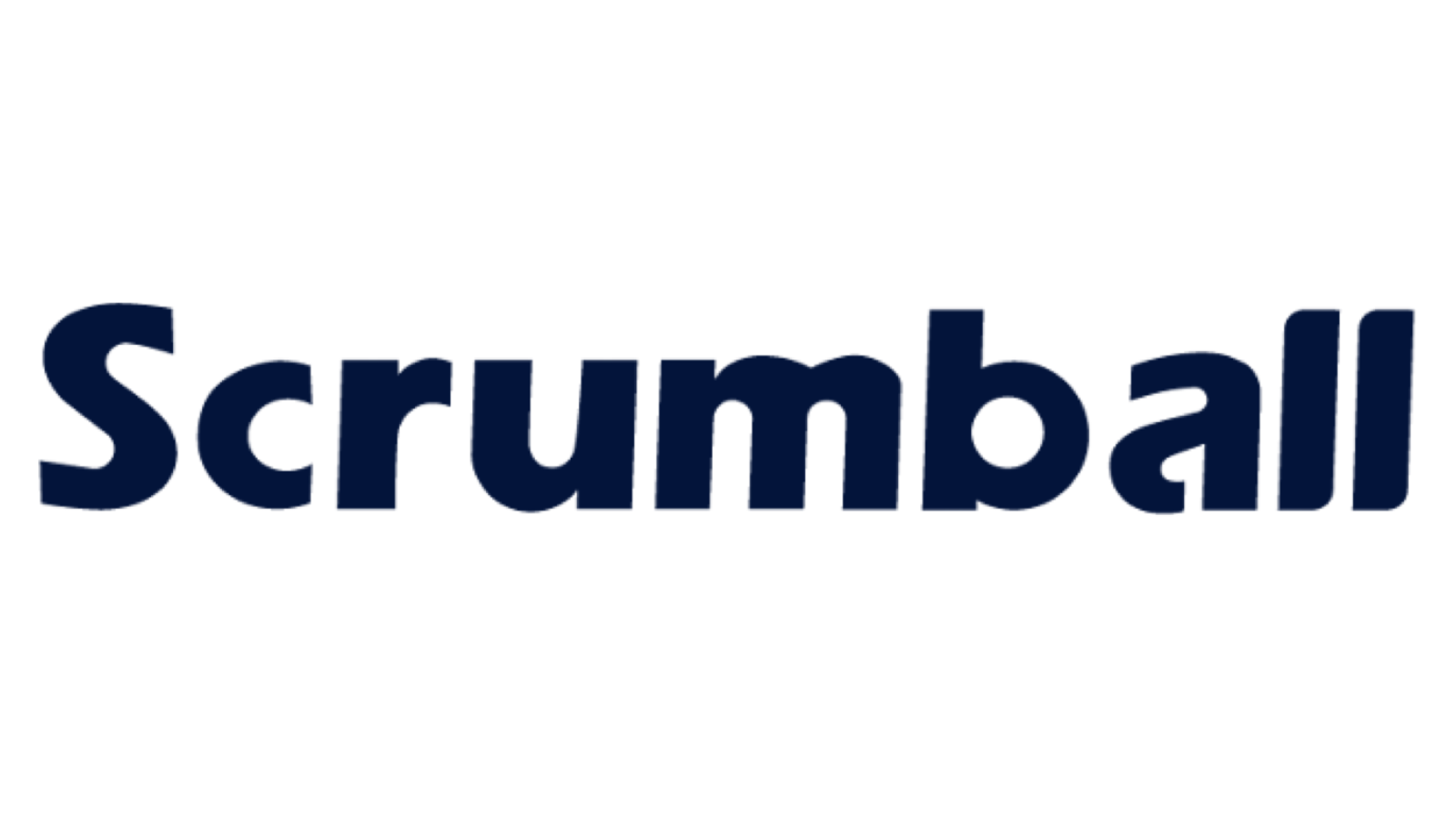AI in Marketing Automation Drives Better Campaigns

AI is revolutionizing how you approach marketing. It empowers you to make smarter decisions by analyzing vast amounts of data, uncovering trends, and predicting customer behavior. With AI in marketing automation, you can create campaigns that resonate deeply with your audience while saving time and resources.
Businesses worldwide are already reaping the rewards. Starbucks, for instance, achieved a 270% ROI in just 18 months by using AI to personalize marketing efforts, boosting sales by 15%. Similarly, Euroflorist increased online sales by 7% within three months through AI-driven optimization. These success stories prove that AI doesn’t just enhance efficiency—it transforms customer experiences.
When you embrace AI, you unlock the potential to connect with your audience on a personal level. It’s not just about automation; it’s about creating meaningful interactions that drive loyalty and growth.
The Role of AI in Marketing Campaigns
Data Analysis and Insights
How AI uncovers trends and patterns in large datasets.
AI transforms how you approach data analysis. It processes massive datasets with unmatched speed and precision, uncovering trends and patterns that would otherwise remain hidden. By leveraging technologies like machine learning and natural language processing, AI delivers data-driven insights that guide your marketing strategies. For example, AI can analyze social media sentiment to reveal what your audience values most. This allows you to craft campaigns that resonate deeply with your customers.
AI also identifies market opportunities and gaps, helping you stay ahead of competitors. With its ability to analyze audience engagement metrics, you can refine your approach and ensure your messages reach the right people at the right time. This level of precision not only improves your marketing ROI but also strengthens customer engagement.
Identifying customer behavior and preferences with AI.
Understanding your customers is key to success. AI marketing automation enables you to analyze customer behavior and preferences with incredible accuracy. It tracks interactions across multiple channels, providing a clear picture of what your audience wants. For instance, AI can segment customers based on their demographics, location, and interests, allowing you to deliver personalized experiences.
By identifying these patterns, AI helps you predict future behaviors. This means you can anticipate customer needs and tailor your offerings accordingly. The result? Stronger customer loyalty and more meaningful customer interactions.
Predictive Analytics for Campaign Success
Forecasting campaign outcomes with AI models.
Predictive analytics is a game-changer for marketing. It uses historical data to forecast campaign outcomes, enabling you to make informed decisions. AI models analyze past performance, identifying what worked and what didn’t. This insight allows you to optimize your marketing strategies and allocate resources more effectively.
For example, a global retailer used predictive analytics to improve its marketing mix, achieving a 25% boost in ROI. By leveraging AI, you can create campaigns that target the right audience, improving conversion rates and maximizing your returns.
Optimizing strategies to improve ROI and reduce inefficiencies.
AI marketing strategies focus on efficiency. Predictive analytics helps you allocate budgets to the most effective channels, reducing waste and improving ROI. It also enables you to segment customers based on their preferences, ensuring your messages are relevant and impactful.
With AI, you can adapt your campaigns in real time. This agility allows you to respond to market changes quickly, keeping your strategies fresh and effective. By optimizing your approach, you not only save time and resources but also achieve better results.
Automation of Marketing Processes
Streamlining repetitive tasks like email marketing and ad placement.
Automation is at the heart of AI marketing automation. It handles repetitive tasks like email marketing and ad placement, freeing you to focus on what matters most. AI-powered tools can schedule social media posts, personalize email campaigns, and even manage customer queries through chatbots.
This streamlining improves workflow efficiency. For instance, businesses save over six hours a week by automating social media content. With AI, you can achieve more in less time, boosting productivity and creativity.
Freeing up time for creative and strategic work through automation.
When AI takes care of routine tasks, you gain the freedom to innovate. Automation allows you to shift your focus from mundane activities to strategic initiatives. This fosters creativity and enables you to develop marketing strategies that truly stand out.
By automating processes, you also enhance team productivity. Employees can dedicate their time to high-value work, driving better results for your campaigns. With AI marketing automation, you unlock the potential to achieve more while doing less.
AI-Driven Customer Engagement

Personalization at Scale
Tailoring content and recommendations for individual customers.
AI empowers you to deliver content that feels tailor-made for each customer. By analyzing data from multiple sources, AI identifies individual preferences and behaviors. Tools like Braze and CleverTap use AI-driven personalization to recommend products or services that align with customer interests. For example, Braze’s Sage AI optimizes content across channels, ensuring your messaging resonates with your audience. This level of precision transforms how you connect with customers, making every interaction meaningful.
Dynamic Yield and Adobe Campaign also help you create personalized experiences at scale. These tools analyze customer data in real time, enabling you to adapt your marketing strategies instantly. Whether it’s suggesting the perfect product or crafting a compelling email, AI ensures your content speaks directly to your audience.
Building customer loyalty through personalized experiences.
Personalized experiences build trust and loyalty. When customers feel understood, they’re more likely to return. AI helps you achieve this by delivering the right message at the right time. Tailored messaging enhances engagement and fosters emotional connections. For instance, personalized recommendations not only improve satisfaction but also encourage repeat business. By leveraging AI, you can strengthen relationships and turn one-time buyers into lifelong customers.
Improved Targeting and Segmentation
Refining audience targeting with AI insights.
AI revolutionizes how you target your audience. It analyzes vast amounts of data to create detailed customer profiles. This allows you to identify specific segments based on demographics, behavior, and interests. With AI, you can refine your targeting strategies, ensuring your marketing efforts reach the right people. This precision leads to higher engagement rates and better results.
Enhancing campaign results through precise segmentation.
AI-driven segmentation improves efficiency and decision-making. By automating segmentation tasks, you can quickly identify meaningful patterns in customer data. This enables you to craft campaigns that resonate with each segment. For example, AI tools like Intellimize and Monetate provide actionable insights, helping you anticipate customer needs and deliver impactful messages. The result? Enhanced campaign performance and improved ROI.
Enhancing Customer Satisfaction
Real-time customer support with AI-powered chatbots.
AI-powered chatbots redefine customer support. They provide 24/7 assistance, ensuring your customers always have access to help. These chatbots handle multiple queries simultaneously, reducing wait times and improving satisfaction. For instance, they can diagnose technical issues, recommend solutions, and escalate complex problems to human agents when necessary. This seamless support builds trust and enhances the overall customer experience.
| Benefit | Description |
|---|---|
| 24/7 Availability | Chatbots provide support outside regular business hours, valuable for global customers. |
| Handling Multiple Queries | They can assist many customers at once, reducing wait times. |
| Automating Routine Tasks | This allows human agents to focus on complex issues, enhancing overall productivity. |
| Consistency and Accuracy | Chatbots deliver reliable responses, minimizing human error and building customer trust. |
| Personalization | They leverage customer data for tailored interactions, improving customer experience. |
Creating seamless and engaging customer journeys with AI.
AI creates unforgettable customer journeys. Companies like Netflix and Spotify use AI to personalize experiences, boosting engagement and retention. Netflix’s recommendation engine drives 80% of its content views by suggesting shows tailored to individual preferences. Similarly, Spotify’s AI-driven algorithms craft playlists that resonate with users. These seamless experiences keep customers coming back, proving the power of AI in marketing automation.
Key Benefits of AI in Marketing Automation
Cost Savings and Efficiency
Reducing operational costs with AI tools.
AI helps you cut costs while boosting efficiency. By automating repetitive tasks, it reduces the need for manual labor and minimizes errors. For example, Tesla uses AI to streamline manufacturing processes, resulting in faster production and lower operational expenses. Similarly, 20% of marketing teams report cost savings of up to 19% after adopting AI. These savings allow you to reinvest in growth opportunities and improve your overall marketing performance.
AI in marketing automation also enhances productivity. It handles tasks like data analysis, customer segmentation, and campaign optimization, freeing up your team to focus on creative and strategic work. This shift not only saves time but also ensures your resources are used effectively.
Optimizing ad spend and resource allocation.
AI marketing strategies ensure every dollar counts. Tools like Google’s Smart Bidding and AdRoll analyze performance metrics to adjust bids and allocate budgets dynamically. They predict campaign outcomes, reallocate resources to high-performing ads, and conduct A/B testing at scale. This precision helps you maximize ROI and avoid wasting money on ineffective campaigns.
For example, Adobe’s Sensei uses AI to provide actionable insights for ad placement and targeting. Facebook’s Lookalike Audiences identifies potential customers similar to your existing ones, ensuring your ads reach the right people. These tools empower you to make smarter decisions and achieve better results.
Scalability and Flexibility
Scaling marketing efforts without compromising quality.
AI enables you to scale your marketing campaigns effortlessly. Automated systems ensure consistent brand experiences across locations, while tools like predictive analytics help you tailor strategies to local preferences. For instance, AI analyzes consumer data to deliver personalized recommendations, enhancing customer engagement and loyalty.
| Aspect | Explanation |
|---|---|
| Consistent Experiences | Automated systems ensure uniform brand experiences across different locations. |
| Rapid Deployment | AI tools facilitate quick campaign launches, allowing brands to seize market opportunities swiftly. |
| Adaptive Campaigns | AI allows campaigns to adjust to local preferences while keeping a consistent brand message. |
| Personalized Experiences | AI analyzes consumer data to provide tailored recommendations, enhancing engagement and loyalty. |
| Predictive Analytics | AI predicts consumer behavior, enabling proactive adjustments to marketing strategies for better impact. |
Adapting campaigns in real-time based on AI insights.
AI in marketing automation gives you the power to adapt instantly. Companies like Netflix and Coca-Cola use AI to monitor real-time data and adjust their campaigns dynamically. For example, Coca-Cola launched localized campaigns during the FIFA World Cup by analyzing social media trends. This agility ensures your marketing stays relevant and impactful.
Real-Time Decision-Making
Making instant adjustments to campaigns with AI.
AI empowers you to make decisions on the fly. It processes vast amounts of data in real time, providing actionable insights that help you optimize your campaigns. Dynamic creative optimization tools allow you to experiment and adjust strategies quickly, ensuring your marketing remains effective.
For instance, Spotify curates personalized playlists using real-time listening data, enhancing customer interactions and engagement. Similarly, HubSpot personalizes email campaigns based on lead behavior, improving conversion rates. These examples highlight how AI keeps your marketing agile and responsive.
Staying agile in a fast-paced marketing environment.
In today’s fast-paced world, agility is key. AI marketing automation helps you stay ahead by tracking customer habits and market trends. It enables you to respond to changes instantly, ensuring your strategies remain relevant. Whether it’s adjusting ad placements or refining your messaging, AI keeps you one step ahead of the competition.
By leveraging AI, you can navigate the complexities of modern marketing with confidence. It’s not just about keeping up—it’s about leading the way.
Practical Applications of AI in Marketing

Chatbots and Virtual Assistants
Improving customer service and engagement with AI chatbots.
AI chatbots are transforming how you interact with customers. They provide instant, 24/7 support, ensuring no query goes unanswered. These chatbots handle routine questions, freeing your team to focus on complex issues. They also enhance customer engagement by delivering quick, accurate responses. For example, T-Mobile Austria’s chatbot, Tinka, answers over 1,500 questions and seamlessly transfers users to human agents when needed. Casper’s Insomnobot-3000 connects with users struggling to sleep, creating a unique brand experience. These tools not only improve customer service but also strengthen your brand’s connection with its audience.
Examples of successful chatbot implementations.
Businesses worldwide are leveraging AI chatbots to boost efficiency and customer satisfaction. Slush Jenny Chatbot managed 67% of conversations during the Slush 2017 event, increasing chat discussions by 55%. T-Mobile Austria’s Tinka has been operational since 2015, showcasing the long-term benefits of AI-driven automation. These examples highlight how AI chatbots can elevate your customer interactions and streamline operations.
AI in marketing automation is reshaping how you connect with your audience and optimize campaigns. By adopting AI, you can achieve remarkable results like cost savings, improved efficiency, and enhanced customer satisfaction. Businesses worldwide have already seen success. For example, a retailer doubled sales with AI-driven targeted offers, while a SaaS provider increased qualified leads by 50% using AI for lead scoring. These achievements prove that AI empowers you to stay competitive and deliver exceptional experiences.
As AI evolves, its potential will only grow. By 2025, AI-generated content is expected to double engagement rates, and hyper-personalized marketing could boost retention rates by 35%. Embracing AI today ensures you remain at the forefront of innovation, ready to thrive in the digital age.
FAQ
What is AI in marketing automation?
AI in marketing automation uses advanced technologies like machine learning to analyze data, predict trends, and automate tasks. It helps you create personalized campaigns, improve efficiency, and connect with your audience on a deeper level.
How does AI improve customer engagement?
AI enhances customer engagement by delivering personalized experiences. It analyzes customer behavior, predicts preferences, and tailors content to their needs. This approach builds trust, strengthens loyalty, and ensures every interaction feels meaningful.
Can small businesses benefit from AI in marketing?
Absolutely! AI tools are scalable and cost-effective. They help you automate repetitive tasks, optimize campaigns, and target the right audience. Even with limited resources, you can achieve significant results and compete with larger businesses.
Is AI difficult to implement in marketing strategies?
Not at all. Many AI tools are user-friendly and integrate seamlessly with existing platforms. You can start small by automating tasks like email campaigns or ad placements. Over time, you’ll see how AI simplifies your processes and boosts results.
What are the future trends in AI for marketing?
AI will continue to evolve, offering hyper-personalized experiences and real-time insights. Expect smarter chatbots, advanced predictive analytics, and dynamic content creation. These innovations will help you stay ahead in the ever-changing digital landscape.
See Also
Key Influencer Marketing Statistics To Enhance Your Strategy
Exploring The Role Of Product Seeding In Marketing
Decoding The Return On Investment In Influencer Marketing
Best Influencer Marketing Tools To Boost E-commerce Growth
Essential Influencer Marketing Platforms To Consider For 2024
